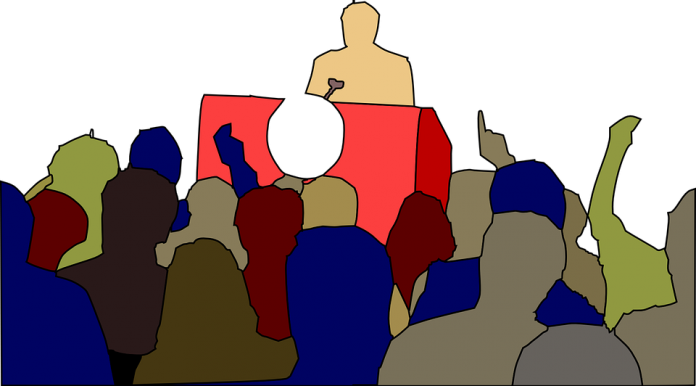5-8 October saw the 3rd cohort of the Taboom Media training workshop covering sexual and gender minorities and religion, gather here in Cape Town. Twenty participants from Botswana, Burkina Faso, Congo-Brazzaville, Côte d’Ivoire, Ghana, Kenya, Malawi, South Africa, Uganda, Zambia, Zimbabwe, Namibia representing media houses in a variety of media that cover the African continent.
By Jacqui Benson
Walking in, I immediately felt out of place in this group, many of whom are seasoned journalists having written on all manner of issues all over Africa. Unlike them, I am not a journalist, but an activist who writes, one of many hats I wear. Yet it was the perfect training opportunity.
Whilst this is not entirely unfamiliar territory for me, a minority in so many respects — the only Jew, white, queer woman, showing up in this particular environment, it is a little intimidating when you are surrounded by people with the wealth of experience, some having spent decades in this industry. These are the however defining moments that I have come to relish and purposefully seek out.
The challenge before me was clear: how do I navigate my journey in this space, offering my own contribution and sharing, whilst always being open to learning and receiving the vast amount of knowledge and lived experiences that were being shared with me? Listening and interacting, being unafraid to ask questions, both in the formal and informal parts of the schedule, as we engaged with one another, all the while keeping to the agreements we charted together at the start, outlining our commitment to our interactions with one another. There was plenty of debate, but whilst they were often lively, it was also respectful and very healthy in fulfilling on our collective training.
Four days packed with presentations by various guest speakers, including Gender Dynamix, the Centre for Compassionate Islam, Dr Azila Reisenberger, Head of Hebrew Studies at UCT who brought the Old Testament to life for us all, Inclusive and Affirming Ministries, GALZ (Gays and Lesbians of Zimbabwe), the European Centre for Journalism and the five phenomenal trainers who facilitated with all their expertise and guidance they had to offer.
We were enriched in understanding Sex, Sexual Orientation, Gender Identity and Expressions (SSOGIE) terminology, insights into the work being done by various faith groups in education and creating safe spaces and how to engage with differing ideas. A clear message was not to try shift the goalposts in one foul swoop, but each time we take ground in educating, for example in challenging the use of derogatory terms when referring to LGBTIQA+ people, we can shift the narrative and start to sensitise people on the harm done to others through language.
Putting this all into practice was key and we were afforded an opportunity to pitch articles that we wanted to work on and have published by the respective media houses.
We were kept well nourished by Robert Mulders and his team at 6 Spin Street, which was an absolute treat and part of a bigger learning lesson — that self-care for journalists is very necessary and often support is needed in doing that.
This opportunity has humbled me, and I have newfound respect for the work of the media. It’s brought home how valuable journalists are, as the people who are on the front line of many ‘battlefields’ in our world today. They bring to us the stories that need to be told and would not otherwise be heard. Investigating and writing, often at great cost to their own personal safety and security, about things that are not popular amongst the majority and often counter to government policy, even when it contravenes human rights.
It’s a stark reminder how although we live in a constitutional democracy, where our freedoms and human rights are guaranteed, you and I cannot, and should not take these for granted. Whilst these are not always upheld in reality, we have recourse to address them. In contrast many of my colleagues’ lives are in danger simply by reporting on a story of a queer person, because homosexuality is criminalised in their country. It behooves me to use my voice to influence and hold leaders, communities and people responsible for their actions.
As I left the workshop, I headed into Kol Nidre, sitting with my machzor and reflecting anew on my part in the world. As a Jew, an activist and a human being. Recognising that I can never leave any of my hats behind, and that making any real difference can only happen when I reach out and show up in spaces I am uncomfortable in. It’s only then that I can really grow and develop, as I engage with how the world sees me, as I grapple with ideas and concepts, lived experiences that are foreign to my own, and see human beings for who they are, as part of my community, living on this continent we call Africa.
To download the November issue of the Chronicle, click here
To read the editor’s column for this month click here
To read the most read story in the October issue, click here











